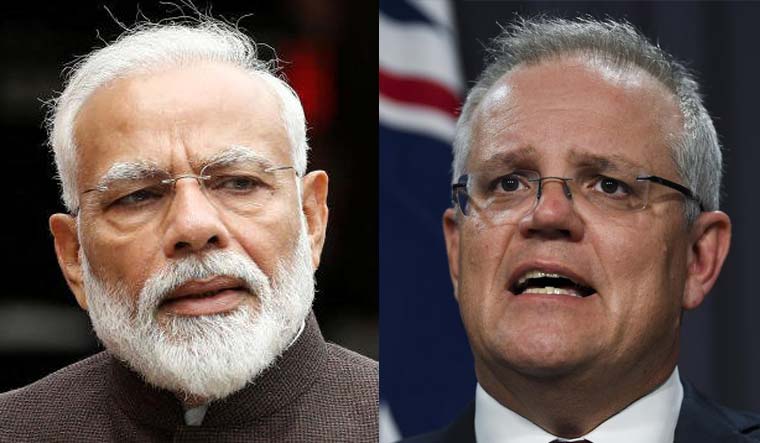There is good news for cricket fans. The upcoming tour of the Indian cricket team to Australia is still very much on the cards. Prime Minister Narendra Modi will meet his counterpart Scott Morrison, virtually, for the first digital bilateral summit later this month. But Virat Kohli might be able to take on Australian fast bowlers later this year.
The tour will not only be important for stadiums, but also for “television channels’’ in Australia currently showing reruns, said Australian High Commissioner designate Barry O’Farrell, at a webinar organised by the Observer Research Foundation.
While on Kohli’s agenda will be a series win, closer cooperation in the Indo-Pacific region will be on the agenda of Modi-Morris virtual meet. Cooperation between the two countries in the Indo-Pacific, especially, as O’Farrell put it, focusing on “security and stability in the Indo-Pacific’’, will be discussed.
“The January summit was deferred due to the bushfires,’’ said O’Farrell. The two countries will also share their experience on the battle with the pandemic.
In the current context, given China’s growing adventurism especially in the South China sea and the recent face-off on the border with India and simmering tensions with Australia, understanding between the two countries in this region will be significant. The relations between Australia and China are at an all-time low. While China is Australia’s biggest export destination, the two countries are engaged in a battle, with Canberra pushing for an independent inquiry into the origins and spread of the virus. China has retaliated by suspending beef imports from Australia, threatening an 80 per cent tariff on barley.
Commenting on the Australia’s stand on an independent inquiry into the origins and the spread of the coronavirus, the High Commissioner designate said, “An independent review... at the right time, into the origin and the spread of the virus was essential.’’ The inquiry, he clarified, was “simply to learn lessons’’ and not to target an “institution’’ or a “country’’.
He, however, made it clear that economic coercion was unacceptable. “I can’t believe that any country, even China, wants to risk its international reputation in what is being characterised as economic coercion.”
Australia has been a big supporter of India’s stand to reform the WHO. “As the world’s largest democracy, it would be good for India to take a more significant role on the world’s stage. We have been strong supporters of India having a permanent seat on the UN Security Council,’’ he said.
Also read
- ‘Everyone will regret it…’: PM Modi accuses opposition of spreading lies on electoral bonds
- What the fish! Tejashwi Yadav's meal on helicopter snowballs into major political controversy
- Congress’s poll manifesto bears ‘imprint of Muslim League’, says PM Modi
- Fighting big battle against corrupt, won't be intimidated by attacks: PM Modi at Meerut rally



